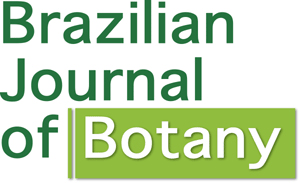The breeding system of Mitracarpus longicalyx was studied from September to December 2004 at Feira de Santana, BA, Brazil. This species is an annual herb found in the "caatinga" of northeastern Brazil, flowering between June and December. The inflorescences are glomerules with ca. 90 flowers. Each flower has a white 4-5 mm long hypocrateriform corolla. The flowers are protandrous with a three days long staminate phase followed by a five days long pistilate phase. No overlapping between phases was observed within a flower, but flowers in different phases appear in the same inflorescence. M. longycalyx is psycophilous species, pollinated by Hemiargus hanno hanno (Stoll, 1790) (Lycaenidae). Hand-pollination tests indicated that M. longicalyx is a self-incompatible, non-agamospermous species, with high fruit set under natural conditions (97.8%) in the studied population; fruit set was also high (82.3%) with hand cross-pollinations but geitonogamous hand pollination gave zero fruit set. Out-crossed pollen tubes reached the ovary within 24h after pollination, while selfed pollen grains failed to germinate or selfed pollen tubes failed to penetrate the stigmatic papillae. The results indicate that M. longicalyx has homomorphic self-incompatibility, possibly of the sporophytic type, in addition to protandry. Homomorphic self-incompatibility is very rare in the Rubiaceae, a family with abundant occurrence of heteromorphic self-incompatibility.
breeding system; Mitracarpus; protandry; Rubiaceae; self-incompatibility





